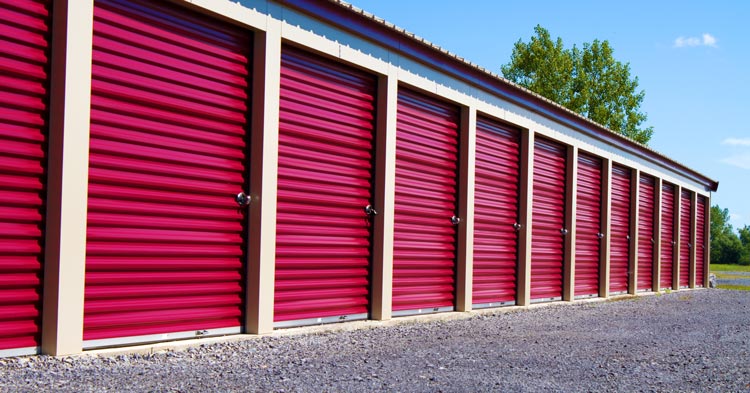Owning a self-storage facility in Pennsylvania comes with a unique set of legal obligations. PA’s Self-Service Storage Facility Act outlines how facility owners can protect their investment, enforce rent payments, and legally handle tenant defaults.
Whether you operate a single location or manage multiple storage facilities, understanding self-storage laws isn’t optional. Otherwise, you risk costly legal disputes and can impact your bottom line.
This guide explains the key rules you must follow, the rights you have as an owner, and common mistakes that can lead to lawsuits.
Don’t let a missed deadline or incomplete notice cost you. Contact High Swartz’s commercial property team today to protect your rights as a storage facility owner.
Contact our Business Law team today to start the conversation.
Storage Unit Laws - Key Takeaways
- Pennsylvania’s Self-Service Storage Facility Act governs lien rights, notice requirements, and property sales for self-storage owners.
- Owners must follow strict timelines before denying access or selling a tenant’s property.
- A clear, well-drafted rental agreement is your first defense against disputes.
- Prohibited uses, including living in a storage unit, must be enforced to avoid legal penalties.
Rising Demand Creates a Greater Risk for Storage Unit Owners
The self-storage industry is thriving. Nationally, between 10% and 11% of households currently rent storage units, according to the 2023 SpareFoot Storage Industry Statistics Report.
SelfStorage.com data from 2023 shows Pennsylvania ranks among the top 10 states for total square footage, a sign of the industry’s strong presence in our region.
Rising demand means more opportunity, but also more risk in the form of late payments, abandoned property, and misuse of units.
“Facility owners should think of the Self-Service Storage Facility Act as both a shield and a sword,” says Kevin Cornish, commercial litigator and retail defense attorney at High Swartz LLP. “It protects your right to collect unpaid rent, but it also sets strict procedural requirements that you must follow to avoid liability.”
What is the Self-Service Storage Facility Act?
Before you can protect your rights as a storage facility owner, you need to understand the legal terms defined by Pennsylvania’s self-storage laws.
Pennsylvania’s self-storage laws define:
- Facility: Any property used for renting or leasing individual storage space to store and remove personal property, but not for residential purposes.
- Owner: A person authorized to manage the facility, receive rent, and enforce the lease.
- Occupant: A person entitled to use a storage space under a rental agreement, including an occupant in a subsequent written notice if the lease has been updated.
So whether you own a single location in Philadelphia or manage multiple facilities across the state, you have lien rights as well as obligations under the law. Although the law applies statewide in Pennsylvania, enforcement may vary by county.
How Can Storage Unit Owners Enforce Lien Rights Under PA Law?
When a tenant stops paying rent, the law gives you a lien on all stored property for the amount owed. That lien attaches from the date the property is placed in storage.
However, the law sets a strict timeline and notice process:
- The tenant must be in default for at least 30 days before you take enforcement action.
- As an owner, you must provide a subsequent written notice by certified mail or personal delivery service to the occupant’s last known address.
- That notice must include:
- An itemized list of charges
- Payment deadline (minimum 30 days)
- Statement of lien rights
- Owner’s name, street address, and telephone number
- Bold warning about sale or restricted access
Cornish notes, “If even one required element is missing from your notice, you could lose your right to enforce the lien through a public sale.”

What Can a Storage Unit Owner Do if a Tenant Stops Paying?
In Pennsylvania, if the occupant fails to pay within the notice period, a storage unit owner can enforce lien rights. However, they must abide by the Act’s detailed sale rules. These rules protect both your rights and the occupant’s property value:
- Deny the occupant access to the unit.
- Advertise the sale twice in a newspaper serving the area, or post notices in six conspicuous public places if no paper exists.
- Hold the sale at the facility or the nearest suitable location.
- Allow redemption of the property at any time before sale if the occupant pays the lien and expenses.
- Provide a receipt bill of lading to the purchaser, ensuring transfer of ownership without prior claims.
- Return any surplus proceeds within six months or report them to the state.

Can a Storage Unit Be Used as a Residence?
Following self-storage laws isn’t just about collecting unpaid rent. It’s also about avoiding costly liability.
One of the most critical rules is the prohibition on using your facility for residential purposes. You must ensure no one lives or sleeps in a unit, both for safety and to comply with zoning regulations.
Owners also need to document any removal of personal property, maintain records of all notices sent, and confirm all sales comply with the advertising and timing requirements of the Act.
Doing so reduces exposure to claims of wrongful sale, breach of contract, or unlawful eviction.
How High Swartz LLP Helps Storage Facility Owners
Our attorneys routinely represent owners before County Courts of Common Pleas and other local jurisdictions in Pennsylvania and New Jersey. We help facility owners protect their rights and stay compliant.
From drafting airtight rental agreements to representation in lien disputes, High Swartz assists storage unit owners with:
• Enforcing self-storage lien laws
• Managing occupant defaults in compliance with the Act
• Defending against wrongful sale claims
Contact Kevin Cornish with our commercial litigation team today to protect your rights as a storage facility owner.
Call our Norristown law office: 610.275.0700. With over a century of serving Pennsylvania businesses, High Swartz has the experience to protect your investment and your peace of mind.
